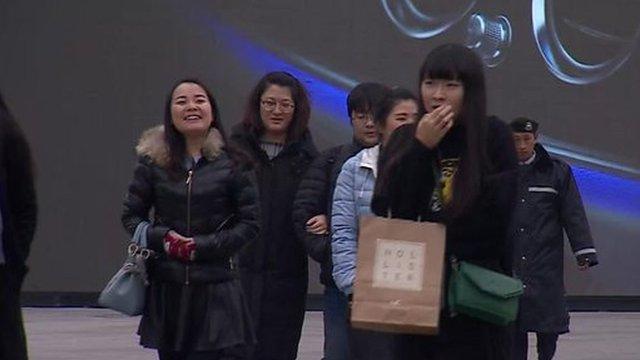How might Donald Trump deal with North Korea's Kim Jong-un?
- Published
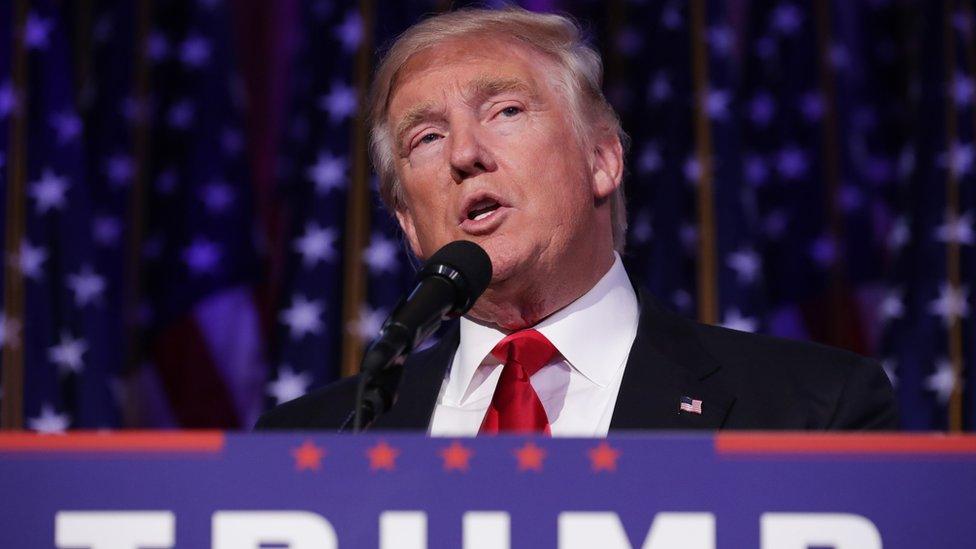
Mr Trump has said that he would be prepared to meet Kim Jong-un over a hamburger
In the list of urgent priorities awaiting the US president-elect North Korea is likely to be near the top. With the best expert advice suggesting it could have a functioning nuclear arsenal capable of hitting the US within five years, how might Donald Trump deal with Kim Jong-un?
The soon-to-be 45th President of the United States of America has already made an assessment of the Supreme Leader of the Democratic People's Republic of Korea.
Donald Trump has called Kim Jong-un a "bad dude". But he also added that he would be prepared to meet him over a hamburger.
And Kim Jong-un seems to have made an assessment of the president-elect. In June, the state-controlled media called Mr Trump a "wise politician" and the right choice for American voters.
So might it be sweetness and light in the relationship between two leaders who are outspoken and upfront? Neither lacks ego but might they yet find common ground?
'This guy doesn't play games'
It seems unlikely.
In Iowa in January, the American president-elect betrayed a trace of admiration, even as he suggested his counterpart was crazy.
"This guy, he's like a maniac, OK? And you have to give him credit. How many young guys - he was like 26 or 25 when his father died - take over these tough generals, and all of a sudden, you know, it's pretty amazing when you think of it," he said. "How does he do that?"
And answering his own rhetorical question, Mr Trump said: "He wiped out the uncle. He wiped out this one, that one. I mean, this guy doesn't play games. And we can't play games with him. Because he really does have missiles. And he really does have nukes".
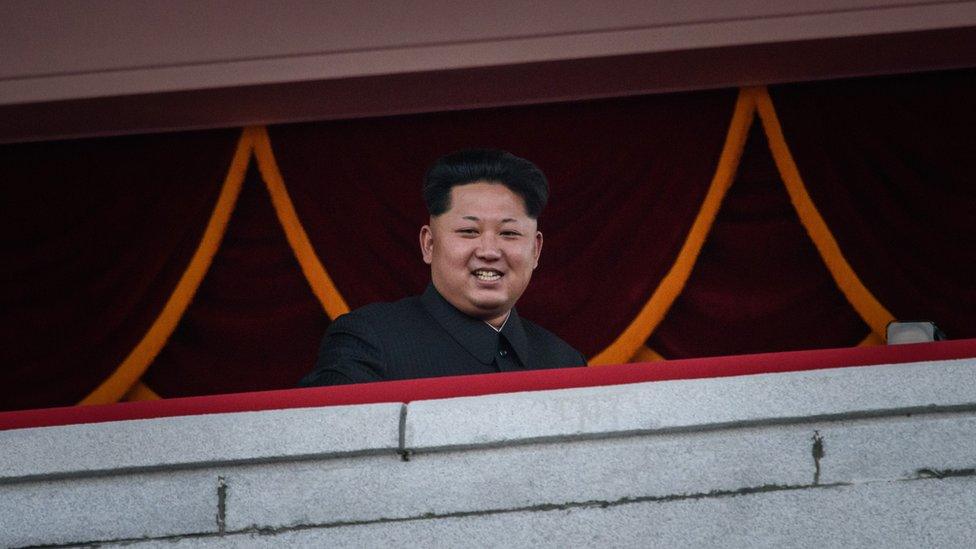
"This guy, he's like a maniac, OK?", Mr Trump said of North Korea's leader
He does, though they are not yet fully functioning. The fear is his apparent commitment to missiles capable of striking the big American cities on the West Coast or Washington (which he has threatened to turn into a sea of flame).
Kim Jong-un has also been shown inspecting what the North Korean media said were nuclear warheads, but the best expert assessment is that the missiles to deliver them are perhaps five years away.
And North Korea warned that it might utilise what it could against the "US Imperialists and the South Korean puppets".
As an official, blood-curdling video put it earlier in the year: "The right of a pre-emptive nuclear attack is not the monopoly of the United States."
It has to be remembered that this kind of blood-thirsty rhetoric is frequent and relentless and rarely followed up by action. It may be as much sabre-rattling for internal politics (to keep the external threat at the forefront of North Korean minds) as it is for outside consumption.
Chinese control
So what might President Trump do to prevent North Korea fulfilling its ambition to become a fully-fledged nuclear power?
On American television in February, Mr Trump indicated that he thought China was the key: "China has control - absolute control - over North Korea. They don't say it, but they do.
"And they should make that problem disappear. China is sucking us dry. They're taking our money. They're taking our jobs. They're doing so much. We have rebuilt China with what they've taken out
"We have power over China, China should do that. I would force China to do it economically".
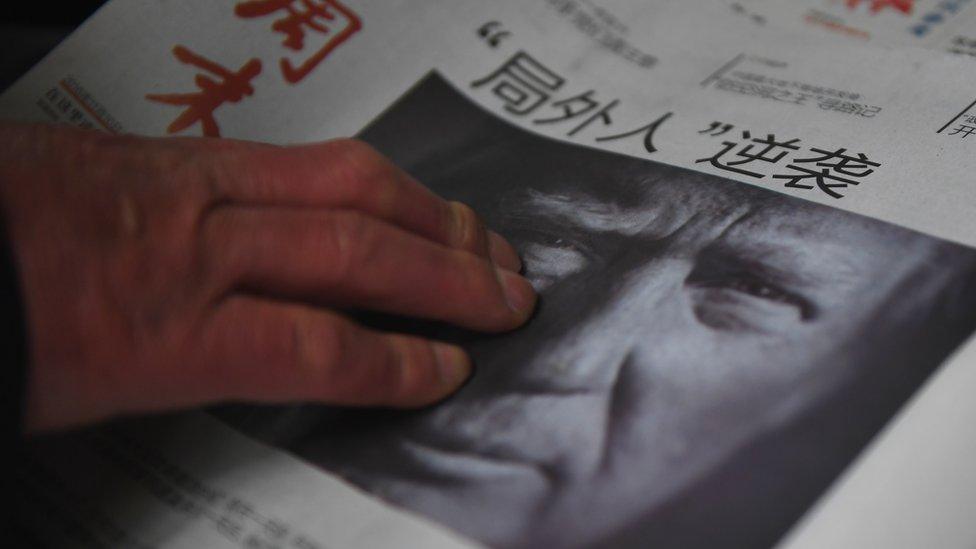
According to Mr Trump, China has "absolute control" over North Korea
He has not indicated how "economic" pressure on Beijing could force its hand on Pyongyang, or what he thinks the consequences of being tougher on China (presumably with the threat of making trade more difficult) might be.
There is always a degree of psychological second-guessing when it comes to North Korea. The risk here is that Kim Jong-un may simply be strengthened by outside attention.
And while it is hard to understand fully the dynamics within North Korea, it may be that the louder an outside adversary is, the more Kim Jong-un can present himself as the strong defender of the nation to his own people.
Controversial and extreme ideas?
In this regard, Donald Trump and Kim Jong-un would be interesting adversaries.
In South Korea, there is now intense rumination on what a Trump presidency might mean to the alliance with America.
Mr Trump said he would want South Korea to pay more for the presence of US troops in Asia: "We are defending South Korea, we're defending so many countries, we get peanuts".
He has also indicated that he would not be averse to South Korea and Japan having their own nuclear weapons. Both countries have the technology to develop them very quickly.
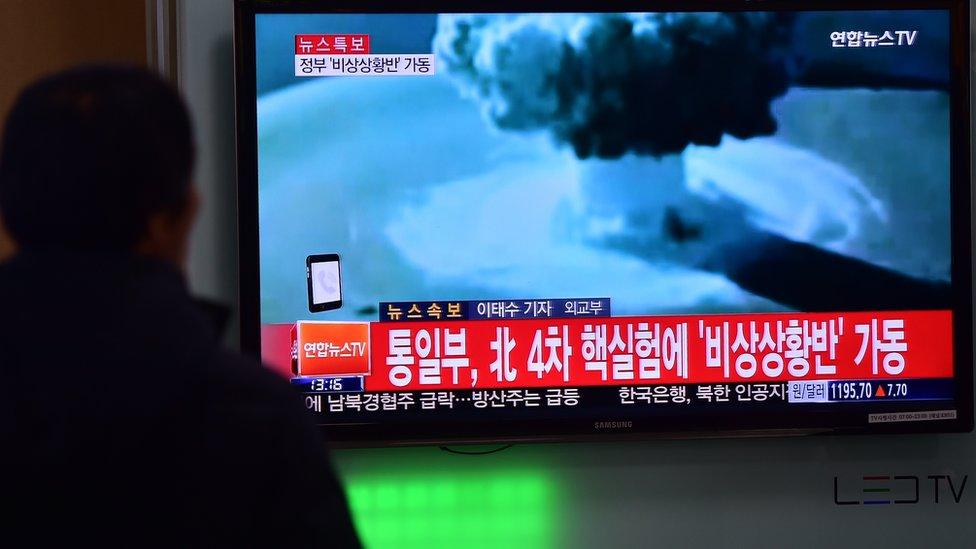
If Japan goes nuclear, the pressure on South Korea to do the same would be great
That is viewed by many in South Korea as having the potential to destabilise the current balance of power in the region - If Japan went nuclear, the pressure on South Korea to do the same would be great. And China would view nuclear weapons in either country as a serious threat.
Five ways a Donald Trump presidency changes the world
Professor John Delury, a specialist at Yonsei University in Seoul in the politics of China, told the BBC that Mr Trump's "controversial and extreme ideas" put into question "the foundations of US policy towards Korea which have been in place since the Korean war. He's put those on the table for negotiation".
And he thought that Beijing would be pleased with Mr Trump's election because of his scant experience in foreign affairs.
"I would anticipate that in Beijing right now there's a little bit of licking the chops about what China can do to advance its position in Asia, given that there's an isolationist president taking over, one who doesn't have that depth of foreign policy experience," he said.
"It may be a happy day in certain quarters of power in Beijing".
Mr Trump will have to learn fast in this region where emboldened Chinese authority pushes at boundaries and tests America's allies. If China is pushed by Mr Trump might it push back and resist American pressure - and might that actually cement Kim Jong-un's power?
These are fine judgements for the most subtle of political minds. Mr Trump may or may not have such an intelligence. It is a new field for him - a minefield.
- Published10 August 2017
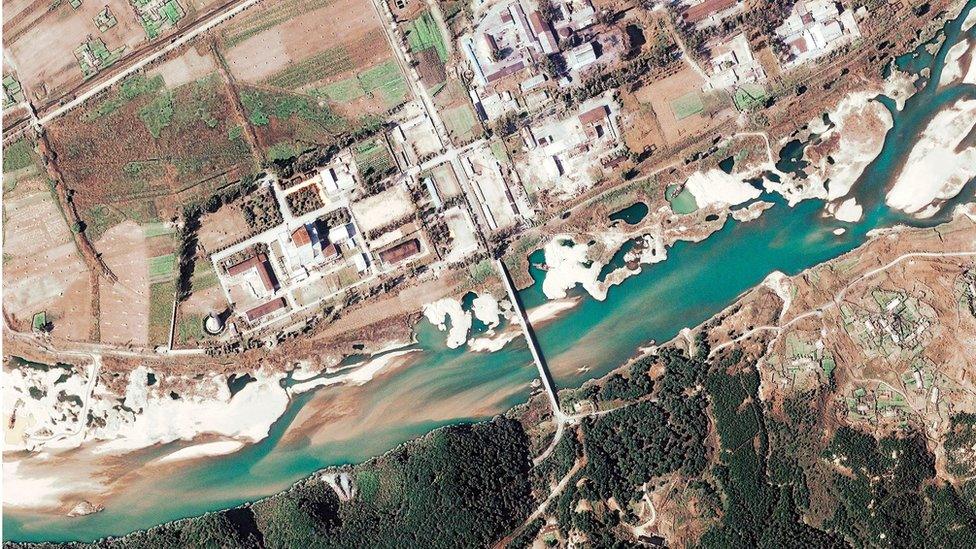
- Published18 May 2016
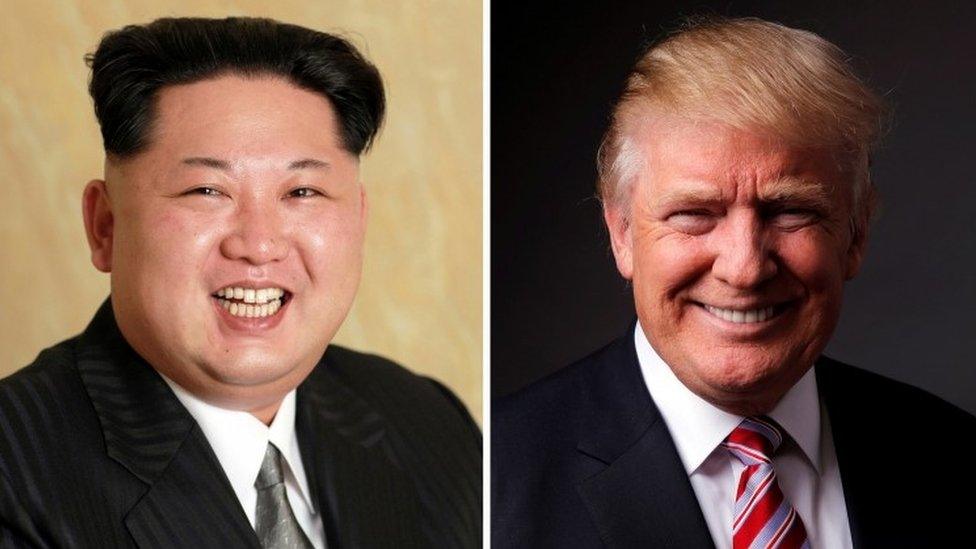
- Published25 April 2017
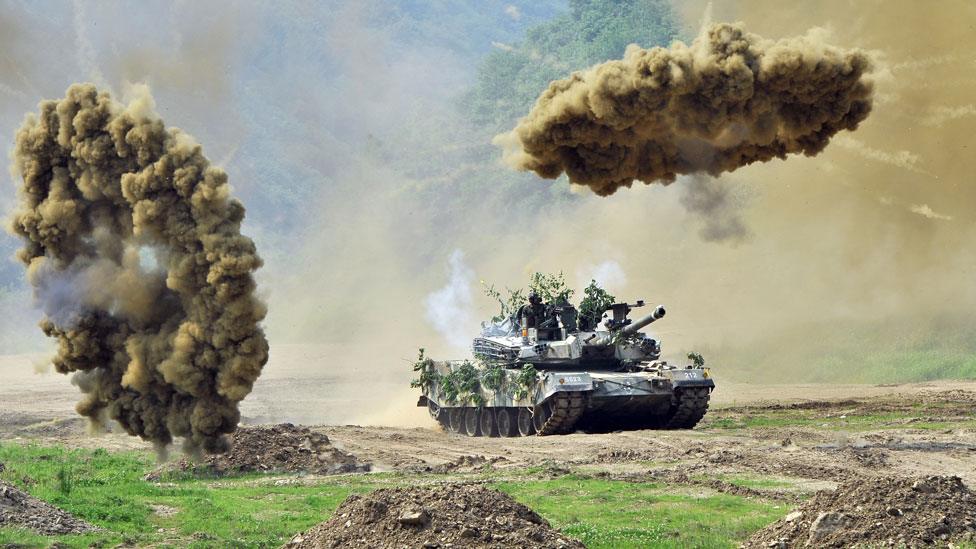
- Published9 November 2016
